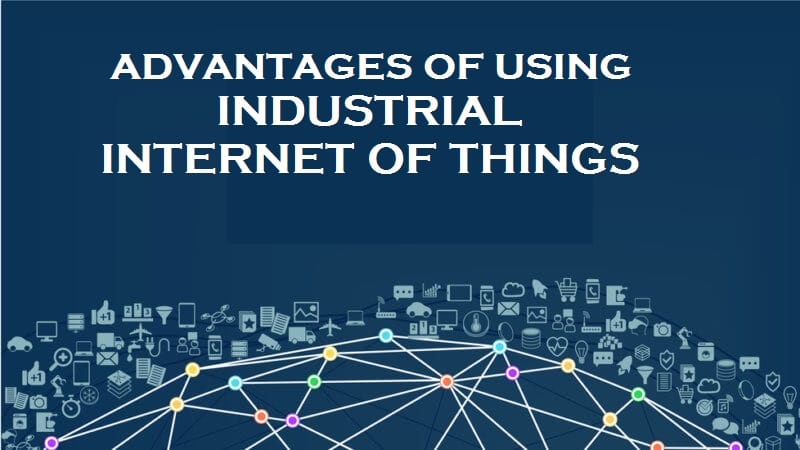Various Advantages of Using Industrial Internet of Things

TechsPlace | Internet of Things (IoT) is a branch of Electronics and Communication that deals with connecting non-digital objects to the digital internet. This technology allows better control and connectivity to various objects that once couldn’t be controlled remotely.
Appliances like washing machines, kitchen appliances, music and other entertainment systems, fans, air conditioner, thermostats and lights were simple electric switch-based appliances, but these can now be controlled using the internet all because of IoT.
IoT has reached whole new levels in the consumer market, but recent advancements in technology and understanding has led to the inclusion of IoT in industrial supply chains as well. IIoT (Industrial Internet of Things) is a sub-branch of IoT that deals only with industrial applications. Various monitoring, maintenance and controlling tasks are taken care of, by IIoT-enabled devices.
Applications of IIoT
Internet of Things in an industry is a step forward towards making it more like the conceptual Industry 4.0. IIoT is mainly responsible for automation, predictive maintenance and monitoring of assets. These assets include mechanical robots and various other industrial equipment.
Here are the applications explained in brief
- Automation
With the help of IIoT, devices that were once out of reach of digital algorithms can now be controlled using those algorithms. Earlier, each device needed separate hard-coded software to allow it to run, but now, with the help of Industrial IoT, these machines can be controlled using various machine learning algorithms due to which human interaction becomes minimal. IoT here is used to ensure that the machines get digitized after which machine learning algorithms take care of the rest.
- Predictive Maintenance
In big industries like deep sea upstream and midstream oil and gas, heavy machinery is deployed in locations where maintenance becomes really expensive. In these cases, scheduled maintenance or reactive maintenance is implemented. In the case of scheduled maintenance, costs are really high and sometimes, maintenance is not even required. When it comes to reactive maintenance, downtime costs a lot to the company, making it a bad choice, which is why with the help of IIoT, companies can implement predictive maintenance. In this, the assets are digitized using IoT technology and performance metrics are noted. If a particular asset looks like it is about to malfunction, a maintenance team is sent to fix the problem before it even arises.
- Monitoring
Asset monitoring is another use of Industrial IoT. In this, the digitalized IoT assets are monitored from a remote location. Generally, industrial assets like transportation pipes have properties like pressure and stress, which determines whether asset performance is up to the mark or not. A team can monitor 1000s of assets at once, which reduces the cost of labor and increases efficiency as most the assets are automatically checked for anomalies and the team is notified only if there is one.
Advantages of IIoT
Now that you know what Industrial IoT is and how Internet of Things is used in the industry, here are a few advantages of IIoT.
- Cost Saver: When you are setting up your industry with Internet of Things, you have to invest some amount but that amount is easily returned by the cost savings of this technology. IoT saves a lot of maintenance costs and as it reduces downtime and it actually earns more. You also save on labor costs due to automation that is possible due to IoT.
- Increased Efficiency: With the help of IoT, human error is eliminated. This means that machines run on the basis of probability when they use machine learning algorithms. With the help of the data that is available to them, they can easily make decisions due to which efficiency increases.
- Helps in Business Intelligence: As IoT connects the machines to the internet, the data that is generated by these machines is available to be analyzed. This allows business heads to make informed decisions about the future prospects of the industry. This is possible only because of the data that is collected with the help of IoT.
- Geo-Intelligence: Another advantage of IIoT is Geo-Intelligence. This enables quick action and even more reduced downtime. For instance, let’s say a machine is about to malfunction. The details of that machine would be displayed in the nearest geo-located individual’s Smartphone and they can fix the problem before it causes even more damage.
There are many more advantages of Industrial Internet of Things. IoT has made rapid changes to the way in which business used to happen and it continues to influence modern-day industries.





